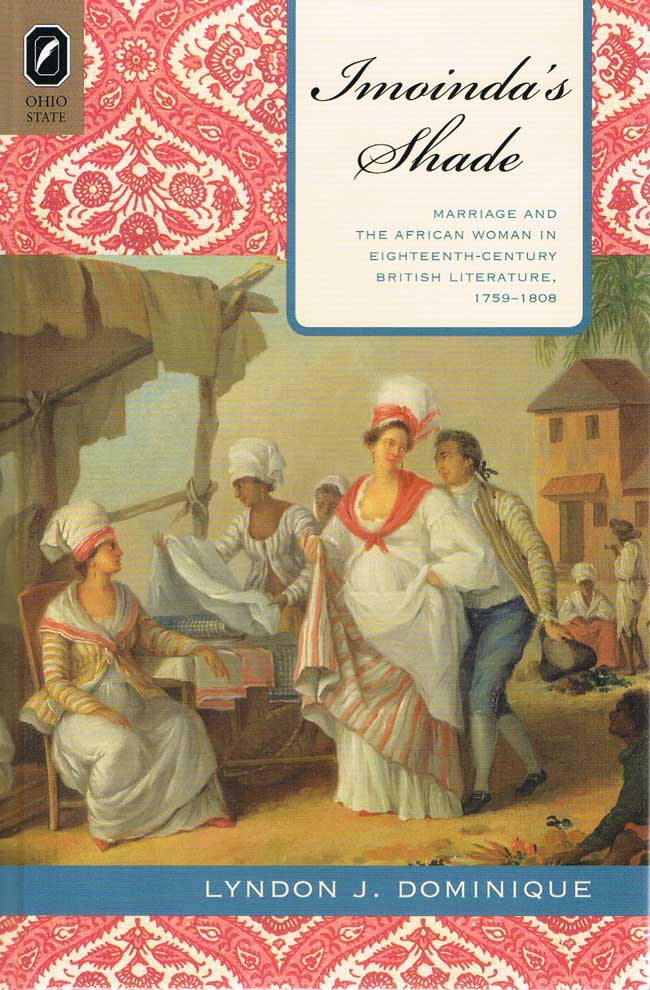Imoinda’s ShadeMarriage and the African Woman in Eighteenth-Century British Literature, 1759–1808Lyndon J. Dominique |
 5/03/2012 Literary criticism/European/English; Literary criticism/African 289 pp. 6x9  $52.95 cloth 978-0-8142-1185-4 Add cloth to shopping cart $14.95 CD 978-0-8142-9286-0 Add CD to shopping cart Shopping Cart Instructions Review/Change Shopping Cart & Check-out | |||
|
“Lyndon J. Dominique’s in-depth study of Aphra Behn’s Oroonoko and a number of lesser-known works will add to the ongoing conversations about the abolition and emancipation eras in England, particularly in tracing the representations of African women on stage and in prose fiction. Dominique performs solid work.” —Candace Ward, associate professor of English, Florida State University “Imoinda’s Shade brings an extremely important message to readers, one that will force reevaluation of their conventional conceptions of the literature of the long eighteenth century as largely unconcerned with challenges and problems of racial difference, bias, and bigotry.” —Paul Youngquist, professor of English, University of Colorado, Boulder As the eighteenth century is entirely bereft of narratives written by African women, one might assume that these women had little to no impact on British literature and the national psyche of the period. Yet these kinds of assumptions are belied by the influence of one prominent African woman featured in the period’s literary texts. Imoinda’s Shade examines the ways in which British writers utilize the most popular African female figure in eighteenth-century fiction and drama to foreground the African woman’s concerns and interests as well as those of a British nation grappling with the problems of slavery and abolition. Imoinda, the fictional phenomenon initially conceived by Aphra Behn and subsequently popularized by Thomas Southerne, has an influence that extends well beyond the Oroonoko novella and drama that established her as a formidable presence during the late Restoration period. This influence is palpably discerned in the characterizations of African women drawn up in novels and dramas written by late-eighteenth-century British writers. Through its examinations of the textual instances from 1759–1808 when Imoinda and her involvement in the Oroonoko marriage plot are being transformed and embellished for politicized ends, Imoinda’s Shade demonstrates how this period’s fictional African women were deliberately constructed by progressive eighteenth-century writers to popularize issues of rape, gynecological rebellion, and miscegenation. Moreover, it shows how these specific African female concerns influence British antislavery, abolitionist, and post-slavery discourse in heretofore unheralded, unusual, and sometimes radical ways. Lyndon J. Dominique is assistant professor of English at Lehigh University. | ||||

